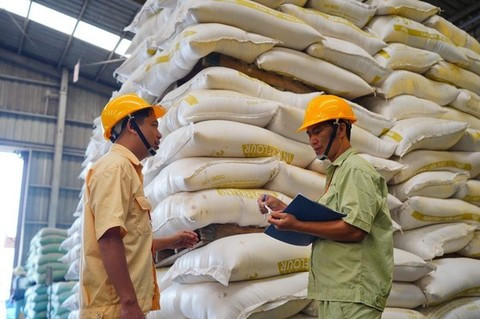
Soybean meal is the main raw material in the formulation of pork bran. — Photo sggp.org.vn
In response to the proposal, Deputy Prime Minister Le Minh Khai, under the direction of Prime Minister Pham Minh Chinh, instructed the Ministry of Finance to work with relevant ministries and branches to study and consider the association's recommendations and submit them for consideration and decision following the law.
The Ministry of Finance shall assume the prime responsibility with relevant ministries and branches to study, consider and handle the association's recommendations on amending relevant documents on import tax and submit them to competent authorities for consideration and decision according to law.
Before that, the Viet Nam Feed Association sent a written proposal to reduce the import tax on soybean meal near the end of February.
The association said that the import tax on wheat had been reduced from three per cent to 0 per cent; corn decreased from 5 per cent to 2 per cent from the end of December 2021.
Soybean meal is a high-cost commodity and is the main raw material in the formulation of pork and seafood bran, but its import tax still retains the rate of 2 per cent.
This puts pressure on the cost of feed production.
The association said that if the import tax rate of 2 per cent was maintained on soybean meal, it would push feed prices to record high and lead to other problems.
Meanwhile, reducing import tax would improve the competitiveness of the domestic industry compared to other countries in the region and the world; and control inflation, ensure people's life, said the association.
The tax reduction would not affect State budget revenue but helped increase budget revenue due to businesses' re-operation and sold products. — VNS